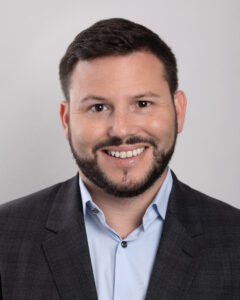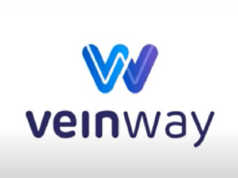
With seven compassionate-use cases under its belt and commercialization in view, VeinWay—developer of the Traversa, a tool for crossing tough venous occlusions—is at a crucial point in its evolution. That is according to chief executive officer (CEO) and co-founder Jordan Pollack, who recently spoke with Venous News about the company’s short- and longer-term goals. He anticipates some challenges in the years ahead, especially with regard to fundraising, and underlines the importance of there being venous-dedicated companies for venous-specific innovation in this often “neglected” space.
What’s in store for VeinWay in the second half of 2024?
This is a pivotal year for us. We’re coming off a really successful 2023 and first few months of 2024 during which time we performed seven compassionate-use cases. In the first of these cases, conducted in January 2023, we were still using a prototype device. The physicians—David M Williams and Minhaj S Khaja of University of Michigan Health (Ann Arbor, USA)—had tried to intervene on the patient about three or four times and she was in so much pain from the occlusion in her leg that she was begging them to amputate her. Drs Williams and Khaja called us up (I studied at the University of Michigan and so I’d already been talking to them through that channel) and said they were willing to take a prototype device because they had no other option. Our prototype device crossed an occlusion that everything else had failed to cross. I recently saw Dr Khaja at the Society of Interventional Radiology (SIR) annual meeting earlier this year (23–28 March, Salt Lake City, USA), and he said the patient was still doing well, a year and two months after the procedure.
The seven cases we’ve done are significant because there are no tools available on the market. We were approved to attempt to cross occlusions with yet unapproved devices because of how difficult these cases are, and we crossed them all—we crossed every occlusion and nothing else commercially available on the market was able to do so.
Later this year, we plan to start a 30-patient trial intended to support US Food and Drug Administration (FDA) clearance and initial commercialization efforts and by the end of 2024—while we won’t necessarily be commercially approved by then because it will likely take until 2025—we will be on a path towards being the first device on the market that is designed to guarantee crossing and will be effective, easy to use, and the tool that every physician will want to have in their cath lab.
A second reason why 2024 is a pivotal year for us is that I expect to close fundraising this year with series A, despite the difficult market. We have lots of interest from major strategic players.
What does the longer-term future of VeinWay look like?
Venous disease is very neglected, and that’s now beginning to change. Now you go to the European Vascular Course (EVC), you go to SIR, and there are lots of talks, but five years ago, there was nothing. I think that trend is going to continue and we, VeinWay, are going to be part of it.
I can see VeinWay becoming a prominent company in the venous space. We need venous-dedicated companies because the big companies aren’t going towards that, they’re doubling down on what they know already—arterial disease. Venous stents have come a long way, but they’re modified arterial stents to be used in the venous system. I think there’s still a lot of room and opportunity for innovation in the venous space, and I can see VeinWay taking that opportunity. The venous system is just so different to the arterial system, and I think VeinWay can really become a specialty company dealing with venous products. It’s in our name!
What are some of the challenges that you anticipate facing as the company is growing and moving forward?
Last year, 2023, was one of the worst years ever for medical device fundraising, and it’s not looking like it’s getting better. People keep saying 2024 is going to be better but we’re already into the second quarter and it isn’t, so this is one serious challenge that not just us, but every company is facing when it comes to building our products and our portfolios. I think it’s one of the biggest headwinds we have.
Then, assuming we get through that, I think the next biggest challenge is inspiring the market and key players in it to drive attention to venous disease. You don’t change the field by hoping others do it, you must trailblaze it, and that’s what we’re doing. And that’s a challenge because it’s not something that’s easily done. But of course, as we always say here at VeinWay, if it were easy everybody would do it. I think that’s going to be a challenge because we must inspire our physicians and get the message out that venous disease can be treated. It will be a challenge for sure.







